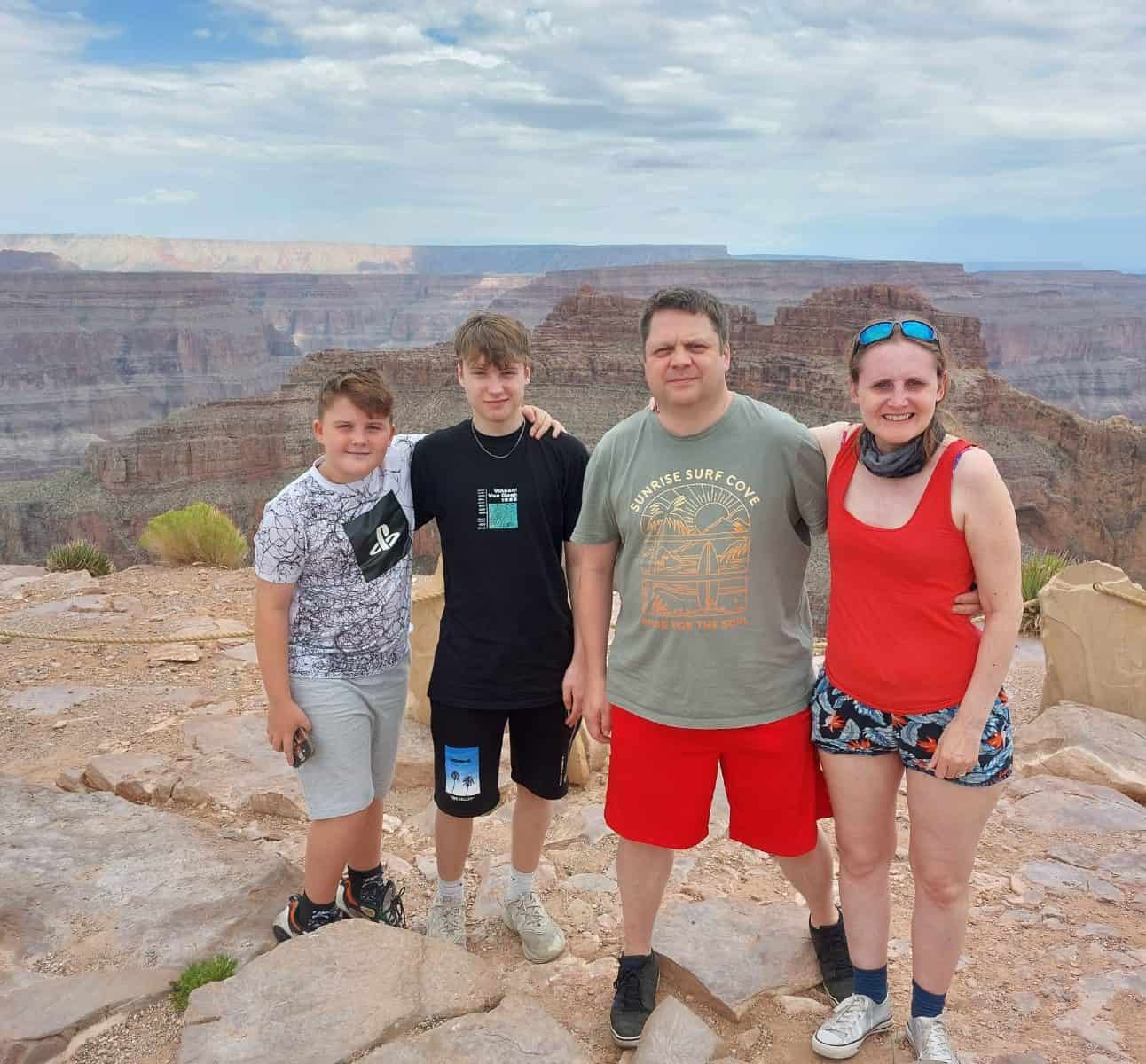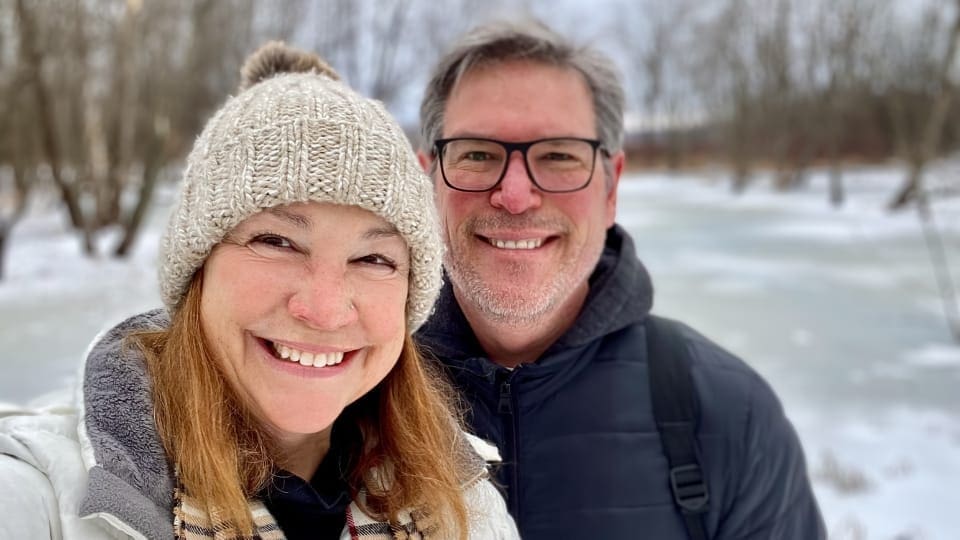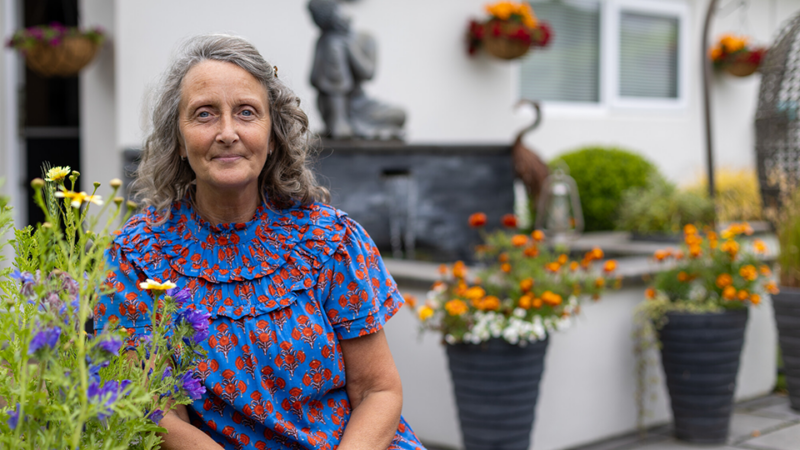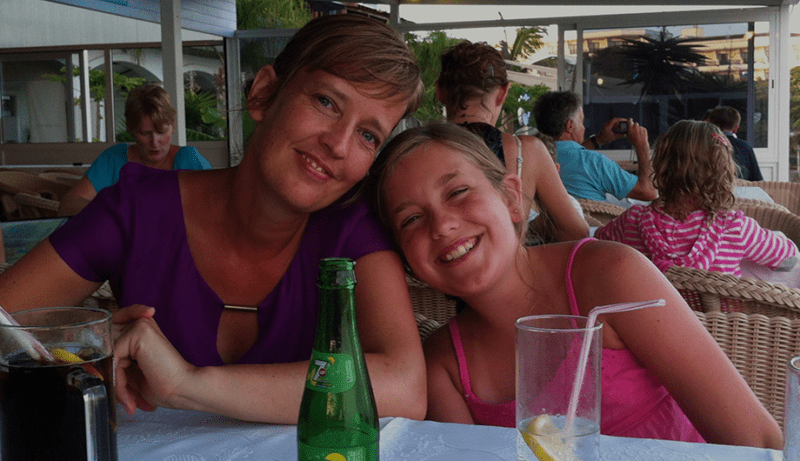
Gareth’s story
Gareth reflects on the challenges of caring for a partner with young onset dementia.

Young onset dementia is any form of dementia that develops before the age of 65. As dementia is frequently considered a condition of old age, the early symptoms of young onset dementia are not always recognised and may be attributed to other causes.
This guide, written by our specialist dementia nurses, explores what young onset dementia is, the signs and symptoms to look out for, getting a diagnosis, and living with young onset dementia.
Dementia is described as ‘young onset’ when symptoms develop before the age of 65. It most often develops in people between the ages of 45 and 65 but can affect people of any age.
Young onset dementia is sometimes referred to as ‘early onset dementia’, but this can be confused with dementia that is in the early stages, so it is a term that is best avoided.
Some people also use the term ‘working age’ dementia, but because retirement age is so variable and increasing all the time, this too can cause confusion.
People with young onset dementia often face different issues from older people with dementia. They are more likely to:
It is estimated that over 70,000 people live with young onset dementia in the UK.
The most common forms of dementia in younger people are:
Around 20% of younger people with dementia have a rarer form of the condition, such as posterior cortical atrophy (PCA) or primary progressive aphasia. There are also other conditions that can lead to dementia in younger people, such as Parkinson’s and Huntington’s disease.
The symptoms of dementia differ from person to person, depending on the type of dementia and which parts of the brain it affects. People often associate it with memory loss, but this is less likely to be an early symptom of young onset dementia. As a result, the signs of dementia in a younger person may be missed or mistakenly attributed to other conditions.
People with young onset dementia may experience changes in thinking, problem-solving, decision-making and communicating. These include difficulties with:
While people with young onset dementia may experience memory problems, they typically develop later than in older people with dementia.
Early behavioural symptoms of dementia in younger people may include changes in:
Some of the physical signs of young onset dementia include changes in:
The symptoms of dementia change over time, and the person’s abilities will deteriorate. Everyone with dementia will die with or from it. However, the progression will vary for everyone, and it is impossible to predict how the person’s condition will change, or how quickly.
Dementia may appear to progress faster in younger people, but this may be because they tend face a longer wait for a diagnosis than older people, so their symptoms are more advanced by the time it is confirmed that they have dementia.
Changes in symptoms are normal as dementia progresses, but if you have any concerns or need support, please speak to the GP or specialist, or contact our specialist dementia Admiral Nurses.
The causes and risk factors of young onset dementia include genetics, lifestyle and other medical conditions. However, in most cases it is hard to pinpoint the exact cause.
People from Black and other minority ethnic groups are at greater risk of developing young onset dementia, as are people with a learning disability, particularly Down’s syndrome.
Younger people are more likely to have an inherited form of dementia caused by a genetic mutation. The most common is familial frontotemporal dementia, which accounts for 30-40% of all cases of frontotemporal dementia and often affects many members of the family.
Other types of inherited dementia are familial Alzheimer’s disease and CADASIL (a rare form of vascular dementia), but these are uncommon.
While it is natural to be concerned about developing dementia if a relative has or had the condition, most cases of dementia are not inherited. However, if a parent has a genetic mutation linked to dementia, each of their children will have a 50% chance of developing the condition. If a genetic form of dementia is suspected testing may be possible for the person and their family to identify any genetic abnormalities, so plans and decisions can be made for the future.
Some lifestyle factors have a link to dementia. These include:
While there is no definitive way of preventing young onset dementia, avoiding these factors could reduce the risk.
Certain other medical conditions may increase the risk of developing young onset dementia, including:
Trying to prevent these conditions, or ensuring they are well managed, may help to reduce the risk of developing young onset dementia.
If someone is showing signs of young onset dementia, it is important that they visit the GP as soon as possible to begin the process of getting a diagnosis. The GP should:
If other causes of the person’s symptoms are ruled out, the GP may refer them for further, more detailed assessments, typically with a specialist memory service/memory clinic or neurologist. It is a good idea for a family member or friend to go to the assessment with them so they can share their own thoughts on the person’s symptoms and provide support.
If someone is diagnosed with dementia before the age of 65, they should be told:
Because dementia is frequently considered a condition of old age, the early symptoms of young onset dementia are not always recognised and may be attributed to other causes with similar symptoms, leading to a significant delay in getting an accurate diagnosis.
If the GP will not refer the person for further assessment and you are still concerned, you can request a second opinion from another GP. If this does not change the outcome, continue to keep a record of the symptoms and book another appointment if you see any changes or deterioration.
Some people with signs of dementia are diagnosed instead with mild cognitive impairment: a decline in cognitive abilities that while noticeable, does not have a significant impact on daily life. Not everyone with mild cognitive impairment will develop dementia, but it is important to have a review with the GP after 12 months, or sooner if there is a significant change in symptoms.
There is currently no cure for dementia, but some people may be prescribed medication. These medications do not stop the progression of dementia, but they may reduce the symptoms.
People with Alzheimer’s disease may be prescribed medication such as donepezil, galantamine, memantine or rivastigmine. These are also sometimes prescribed for people with mixed dementia, Lewy body dementia and Parkinson’s dementia. They are not suitable for people with frontotemporal dementia as they may make the symptoms worse.
Some people with frontotemporal dementia may be prescribed antidepressants called selective serotonin reuptake inhibitors (SSRIs) to help control loss of inhibitions, overeating and compulsive behaviours.
People living with vascular dementia – which is linked to problems affecting the blood supply to the brain, for example, strokes/mini strokes (known as transient ischaemic attacks, or TIAs) and heart disease – may be prescribed medication to reduce the risk of further damage to the cells in the brain, for example for high blood pressure or high cholesterol.
Developing dementia before the age of 65 can have a bigger impact on the person’s life, as there are additional factors to consider when living with the condition at a younger age.
People with young onset dementia may have dependent children or teenagers. Explaining that a parent has young onset dementia can be difficult, but it is important to talk to them honestly, in an age-appropriate way. If you need advice on supporting children or teenagers when a parent has young onset dementia, our specialist dementia Admiral Nurses can offer advice.
Younger people are more likely to be working when they are diagnosed with dementia. It is a good idea to make their employer aware, so they are legally protected against discrimination at work. It also means reasonable adjustments can be made to help them continue to work.
Some occupations legally require a person with dementia to disclose their diagnosis. These include the armed forces, healthcare professions, and jobs that involve operating dangerous machinery or driving.
If you support someone with young onset dementia, consider telling your own employer in case you need accommodations such as flexible working, unscheduled time off, or emotional support.
Many people with young onset dementia have financial commitments such as a mortgage/rent, credit card bills and loans. It is natural to worry about how their finances will be affected as their condition progresses. However, they may qualify for benefits such as:
The Government website has lots of information on benefits.
When a person is diagnosed with dementia, it is important to start thinking about the future. This can be difficult, but planning ahead will help them, their family and friends to prepare. This includes making:
Relationships with family and friends can be affected by the changes brought on by young onset dementia. For example, some types of dementia affect how people experience emotions, which could cause distress for the person with the diagnosis and those around them – such as if they become irritable or agitated.
The person may also find it difficult to talk about having young onset dementia and accept support. However, sharing the diagnosis can help friends and family understand the condition and offer help where possible.
To help a person with dementia remain physically and mentally healthy for as long as possible, you could encourage them to:
Dementia UK can support you if you are concerned about young onset dementia or any other aspect of the condition.
‘Dementia: what next?’: free online sessions for people with dementia, families and friends, hosted by dementia specialist Admiral Nurses.
Admiral Nurse Dementia Helpline: call free on 0800 888 6678 (Monday-Friday 9am-9pm, Saturday and Sunday 9am-5pm, every day except 25th December) or email helpline@dementiauk.org
Virtual clinic appointments: book a free phone or video call with an Admiral Nurse at a time to suit you.

Gareth reflects on the challenges of caring for a partner with young onset dementia.

After being diagnosed with Alzheimer’s at 54, Gail has dedicated herself to living as full a life as possible.

Chloe shares her experience of being a young carer for her Mum, who was diagnosed with frontotemporal dementia at 47, and died aged 51.
It is not known whether young onset dementia progresses more rapidly than dementia in later life. Getting an early diagnosis is important as it means any treatments or support can be put in place to help the person live as well as possible with dementia, for as long as possible.
Everyone’s experience is different so it is better to focus on living in the present than on how the person’s dementia may progress.
While there is no guaranteed way to prevent young onset dementia, it may be possible to reduce the risk by:
If someone is diagnosed with dementia, they are legally required to tell the Driver and Vehicle Licensing Agency (DVLA) or, in Northern Ireland, the Driver and Vehicle Agency (DVA). They do not necessarily have to stop driving straight away, although this is a possibility. They may have their licence renewed, often for a shorter period, or be asked to do a driving assessment. If they are considered unsafe to drive, they will have to surrender their licence.
The person must also notify their insurance company.